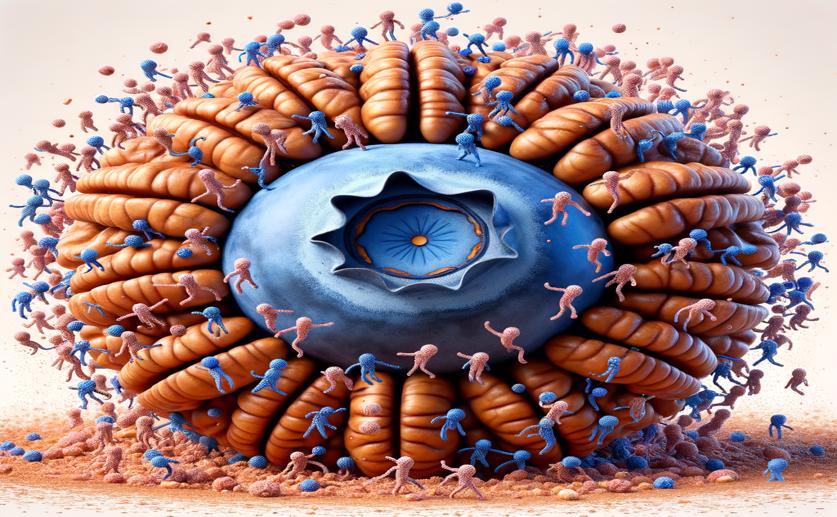
Pecan Shell Extract Coating Fights Bacteria on Blueberries
Greg Howard
27th April, 2024

Image Source: Natural Science News, 2024
Key Findings
- At Louisiana State University, pecan shell extracts were found to have antimicrobial properties
- The extracts, when applied to blueberries, reduced harmful bacteria without affecting fruit quality
- This natural method could improve food safety and shelf life, using what was once waste
References
Main Study
1) Antimicrobial screening of pecan shell extract and efficacy of pecan shell extract-pullulan coating against Listeria monocytogenes, Salmonella enterica, and Staphylococcus aureus on blueberries.
Published 30th April, 2024 (future Journal edition)
https://doi.org/10.1016/j.heliyon.2024.e29610
Related Studies
2) Phenolic compounds and antioxidant activity of kernels and shells of Mexican pecan (Carya illinoinensis).
3) Antioxidant Properties of Pecan Shell Bioactive Components of Different Cultivars and Extraction Methods.
4) Efficacy of antimicrobials extracted from organic pecan shell for inhibiting the growth of Listeria spp.
5) Effect of Pullulan Coating on Postharvest Quality and Shelf-Life of Highbush Blueberry (Vaccinium corymbosum L.).



 7th March, 2024 | Jenn Hoskins
7th March, 2024 | Jenn Hoskins